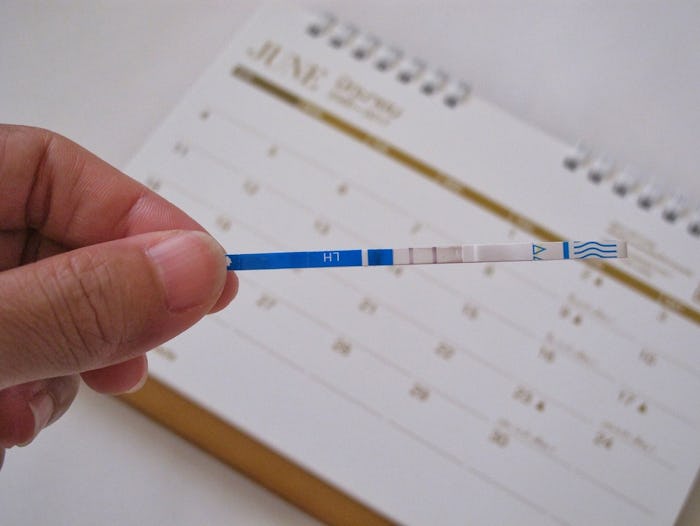Life

How Long After A Miscarriage Will You Ovulate? An Expert Explains
Miscarriages are, undoubtedly, painful to experience. From the emotional weight of losing a baby to the physical stress that your body has to go through, it's no surprise that it takes many women a long time to recover. (And that's totally OK.) When you are ready to move forward and try for another pregnancy, it can be difficult to manage. When is your body healed? Is it safe to try? And, if yes, then when? You might be wondering, "How long after a miscarriage will I ovulate?"
You might be surprised to know that your body can heal itself very quickly after a miscarriage, often much faster than your head or heart will. In fact, according to Parenting, you will likely begin ovulating again two to four weeks after your miscarriage, and your normal menstrual period will resume two weeks after ovulation.
Dr. Terry Grogg, MD, OB-GYN, tells Romper, "After a miscarriage, you can theoretically start ovulating within a week. I have had several patients return to office after a D&C for a miscarriage, and have positive pregnancy tests at two or three weeks after. Of course, it really depends on what the person's cycles were like before the pregnancy."
With clearance from your own healthcare provider, you might be able to start trying again then, with no increased risk for additional miscarriages. But if you want to wait longer, that's absolutely fine — the mental and emotional strain of a miscarriage can be extremely hard to manage. It's vital to take some time to grieve and process if that's what you feel inclined to do.
According to Parents, most doctors recommend waiting two months to start trying again, though others suggest just waiting one full menstrual cycle to start. "Waiting for a complete and normal menstrual cycle," Parents noted, "ensures that the pregnancy hormone hCG has dipped to levels so low that it's undetectable and the uterine lining has returned to normal, making it receptive to receive a future fertilized embryo."
The goal is to reset your body in order to avoid potential issues going forward. If all hormones haven't left your system, you could possibly get a false positive on a pregnancy test when trying again too quickly.
If you've experienced miscarriage, talk to your doctor about your body and what's best going forward. They'll know when it's safe and can talk to you about resuming fertility charts and ovulation tests.